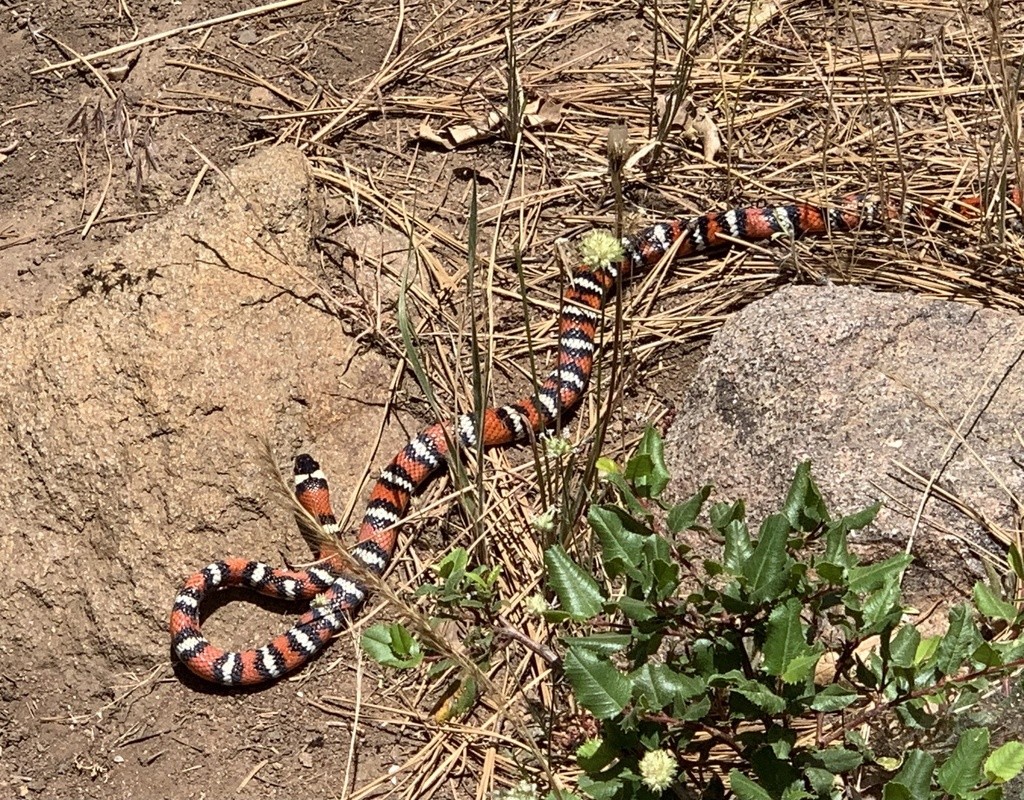California mountain kingsnake
A species of Kingsnakes, Also known as Coast mountain kingsnake Scientific name : Lampropeltis zonata Genus : Kingsnakes
California mountain kingsnake, A species of Kingsnakes
Also known as:
Coast mountain kingsnake
Scientific name: Lampropeltis zonata
Genus: Kingsnakes
Content
Description General Info
Description
Lampropeltis zonata, or the California mountain kingsnake, is a species of nonvenomous colubrid snake, which is endemic to North America. It is a coral snake mimic, having a similar pattern consisting of red, black, and yellow on its body, but the snake is completely harmless. Five subspecies are recognized in the U.S., including the nominotypical subspecies, with two subspecies recognized in Mexico.
General Info
Lifespan
15-20 years
Diet
California mountain kingsnake is distinctly carnivorous, primarily preying on small rodents. Evolution has equipped this predator to specifically target voles and mice, although it also occasionally consumes other reptiles, birds, and amphibians.
Appearance
California mountain kingsnake has a slender body shape that can extend to 3 feet in length. Its smooth, non-venomous scales share a vibrant, banded pattern of alternating deep red, black, and white, giving it a distinct appearance. A pointed snout and stout tail complement these features. There are no significant variations due to age, gender, or subspecies.
Behavior
California mountain kingsnake is a solitary, nocturnal reptile, exhibiting secretive behaviors while keeping a low profile within its habitat. It feeds on small vertebrates with a sit-and-wait hunting strategy. Known for its fake-death performance in distressing situations, california mountain kingsnake can also produce a strong, foul-smelling musk to deter predators.
Population
Decreasing
Scientific Classification
Phylum
Chordates Class
Reptiles Order
Lizards and snakes Family
Colubrids Genus
Kingsnakes Species
California mountain kingsnake 